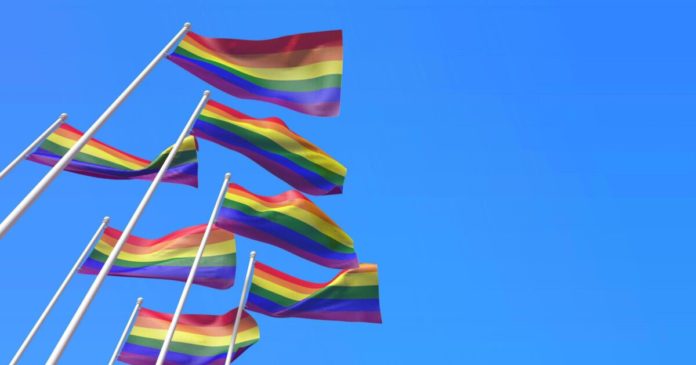
It is staggering, if unsurprising, to hear people hold up Israel as an exemplar of progressive ideals; Israel has, they say, implemented effective vaccination campaigns, enacted successful gun control measures, and established itself as a center of queer freedom. It is not only that these formulations of “success” occlude the anti-Palestinian violence that is the very condition of Israel’s existence; it is that lauding Israel for these forms of “success” actually promotes that violence by insisting on a kernel of righteousness that justifies its existence. That’s the phenomenon that the scholar Jasbir Puar named when she coined the term pinkwashing to describe the way Israel depicts itself as a bastion of queer safety surrounded by homophobic Arab nations. It’s an old story: The settler colony authorizes its own aggression in the name of the vulnerable—repackaged with a glossy rainbow veneer.
Kyle Carrero Lopez’s “Gay Travel (Or Music Makes the People Come Together)” witnesses this familiar pattern. In the poem, B, a settler in his home, travels to another country, where he celebrates pride with other queer settlers, “far from thoughts / of where they were or how or who / was below.” As these lines suggest, the myth of settler virtue relies on the attendant myth of hermetically sealed borders and clearly scripted geographies. But Carrero Lopez’s poem finds and exploits the holes, inverting the spatial order; soon, it is the settlers who rejoice in being below: “under / the molly under the red lights / under the ceiling / under the missile defense system.” As the poem progresses, the contradictions produce proximities. The language of aggression encroaches on those who believe themselves to be lucky and carefree: “club queers choose which tank, / which cross-body bag to wear.” By the poem’s end the party and the occupation are one and the same. And weren’t they always?
– Claire Schwartz








